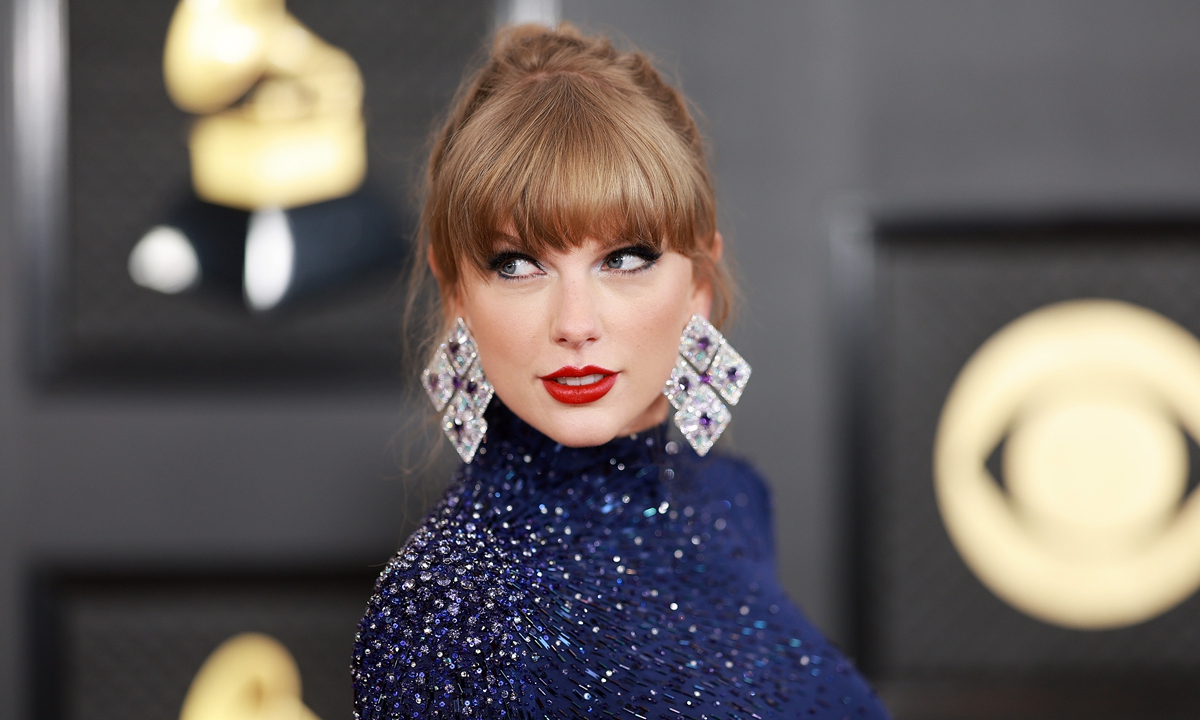ARTS / CULTURE & LEISURE
AI infringement of Taylor Swift’s image triggers concern over regulatory loophole

Taylor Swift Photo: VCG
The recent widespread dissemination of explicit images of US singer Taylor Swift generated by artificial intelligence (AI) has sparked condemnation of AI-related crime and triggered discussions and reflection on Chinese social media.
According to multiple media outlets, including the ABC News, on Saturday, millions of netizens saw AI-generated photos of Taylor Swift on social media this week. Known as image-based abuse, the incident highlights the necessity for regulation of AI technology.
"Legislation needs to be passed to protect people from fake sexual images generated by AI," said White House Press Secretary Karine Jean-Pierre, who noted to ABC News Friday they are "alarmed" by the situation.
However, despite multiple countries implementing regulations to restrict illegal use of AI, preventing such incidents remains a challenging issue.
The rapid advancement of AI technology, encompassing techniques such as speech synthesis and face-changing, poses a significant challenge in combating image-based sexual abuse and other misuse.
For example in recent years, deepfake technology has made substantial progress, allowing users to easily replace the face of a celebrity with their own in an image or even an entire movie scene in a matter of seconds by simply downloading a face-changing app.
The images of the singer spread on X in particular, according to The Verge, with one hitting 45 million views before being taken down.
Swift boasts a massive fan base in China. Just as her recent film's record-breaking box-office success in China had garnered attention, the negative implications stemming from the AI incident have again raised discussion among Chinese fans on social media.
"Apart from Taylor Swift being a victim of AI-generated content, anyone could be described and generated by AI, even if they have never engaged in certain activities," a netizen commented on Sina Weibo. "The threat extends beyond celebrities and internet influencers, potentially impacting ordinary individuals who have left digital traces on the internet."
For years, countries including China have been addressing and penalizing AI-related crime through existing laws and regulations.
China, in particular, introduced its first-ever regulations on deepfake technology in 2023, emphasizing the clear labeling of videos and photos created using AI-related technology to prevent public confusion.
"These regulations aim to prevent the misuse of such technology while adapting to the rapid development of the AI industry," Ding Daoshi, a veteran analyst in the AI sector, told the Global Times.
"China has developed legislation in a timely manner, taking into account the growth of the AI industry and the internet. Regulations are being implemented in tandem with the advancement of the internet and AI, demonstrating the country's progressive approach to AI development," according to Ding.

